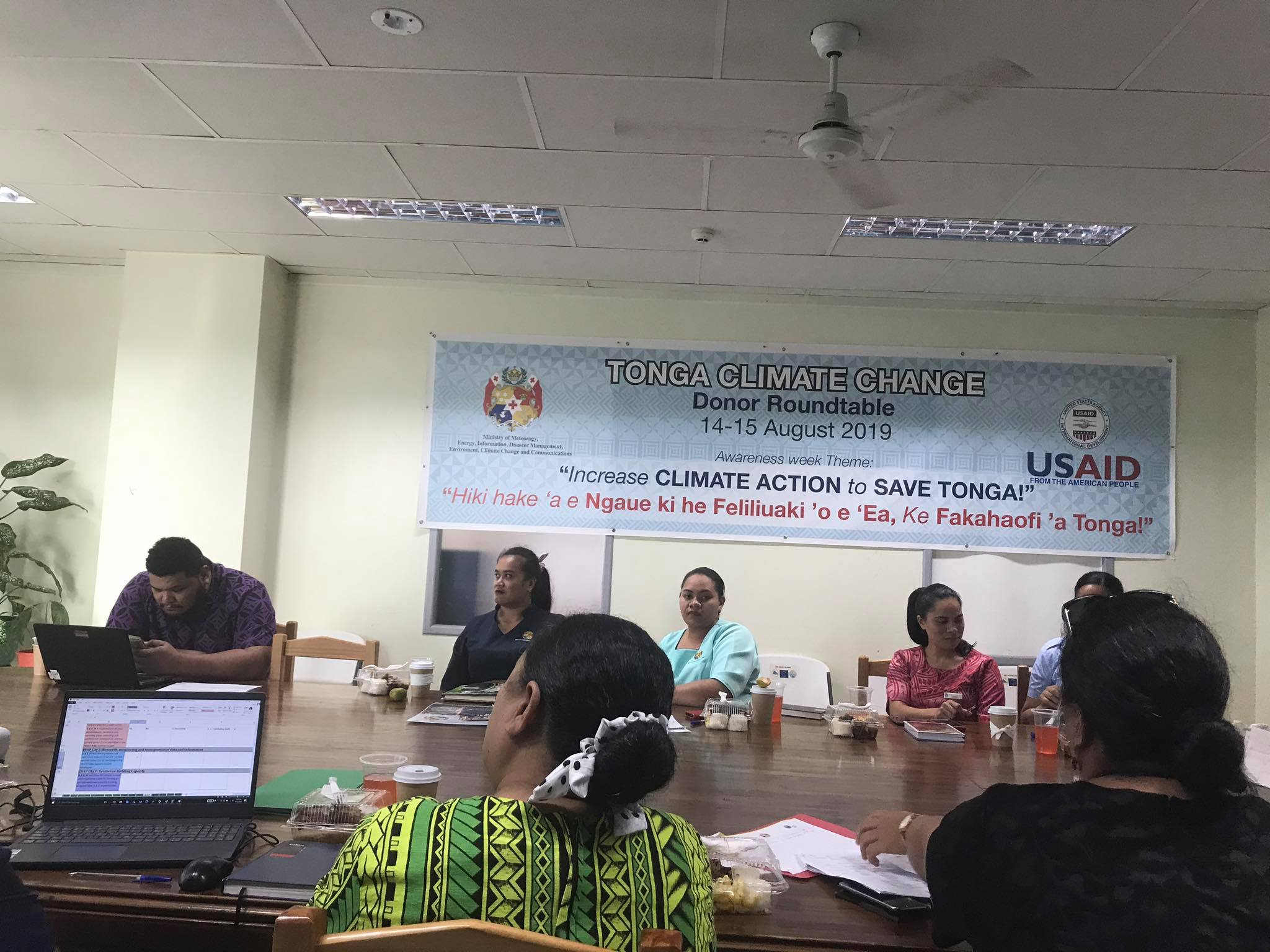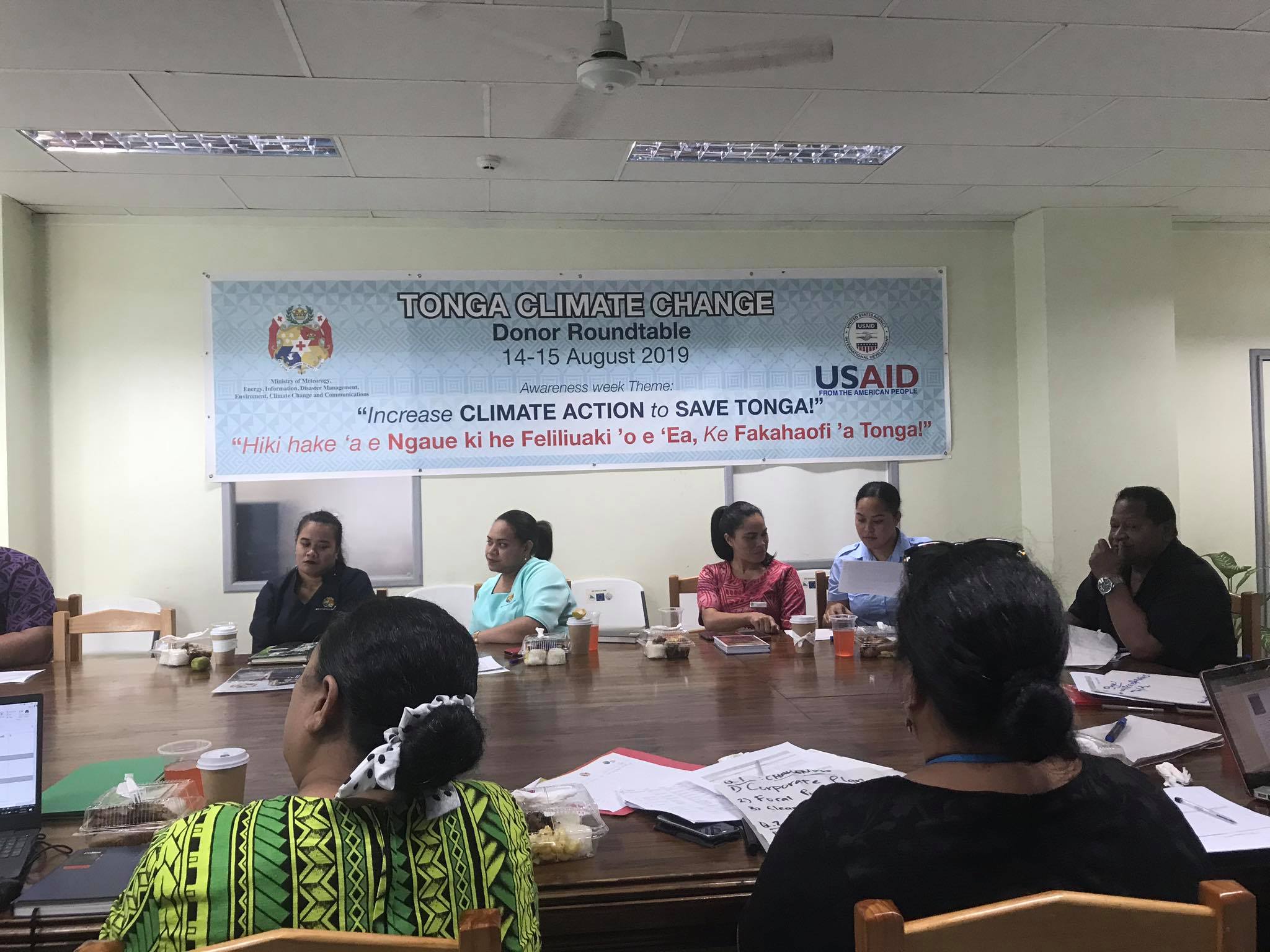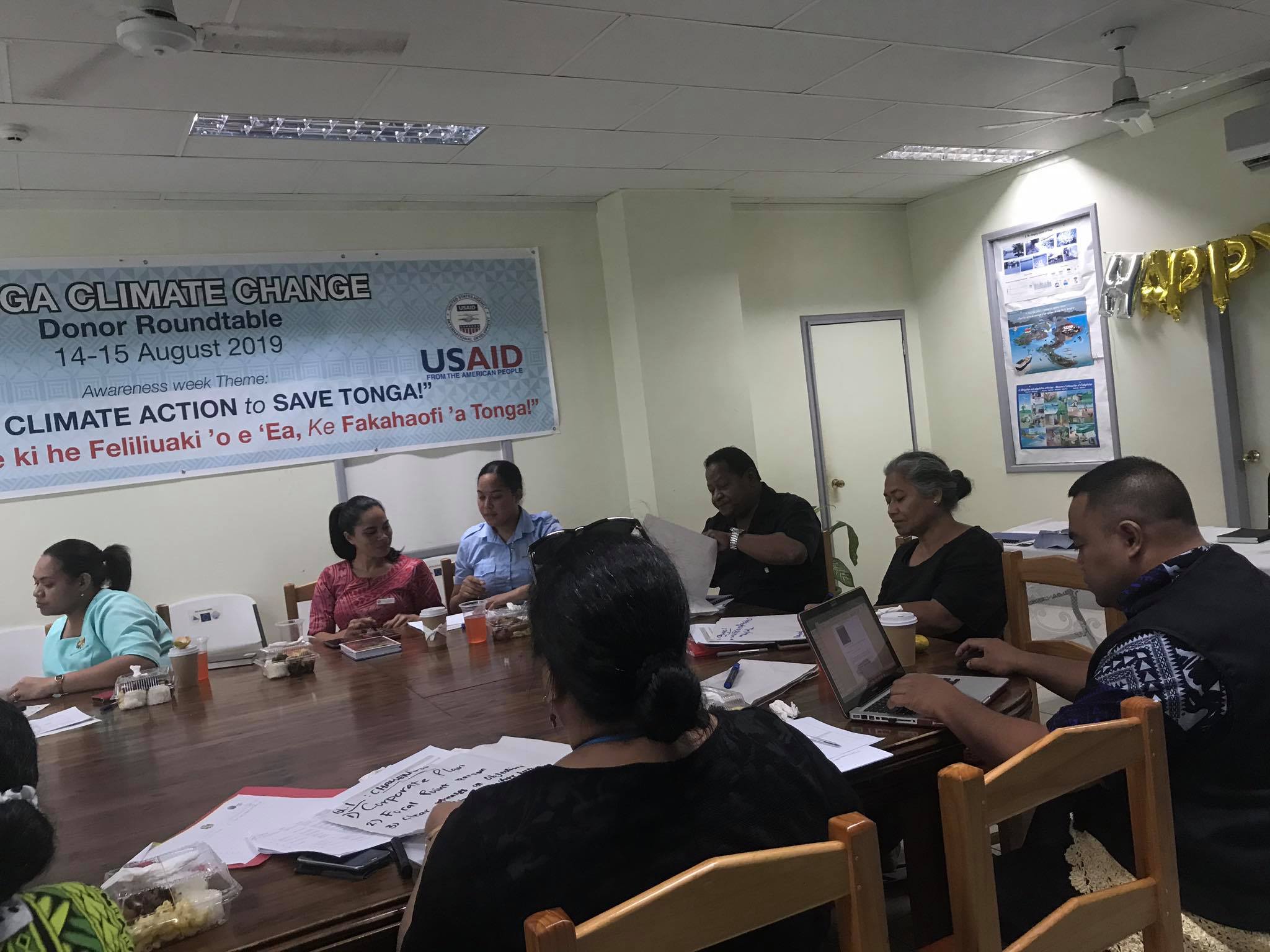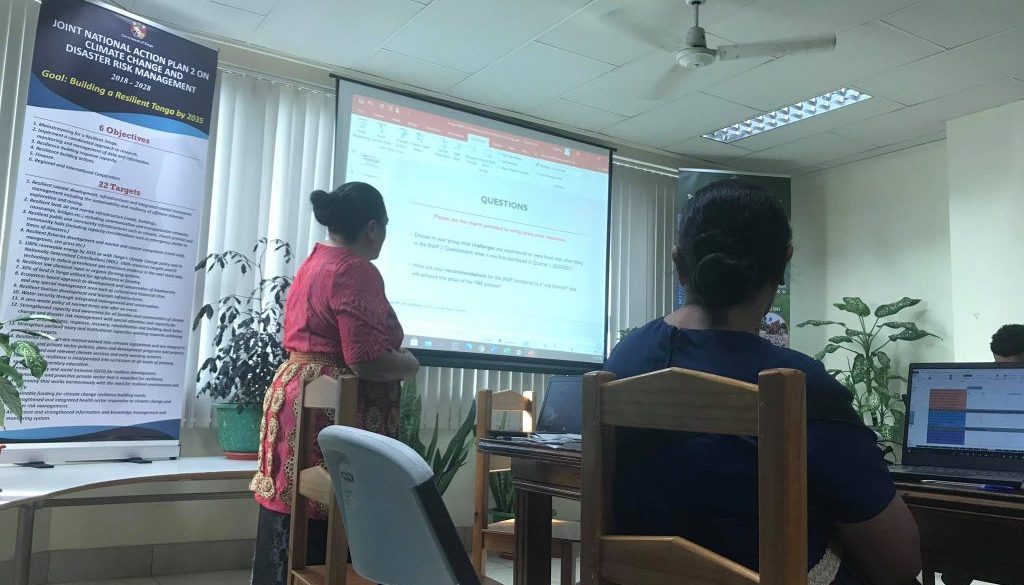JNAP 2 M&E Training for line ministries conducted at MEIDECC by JNAP Secretariat and National Planning Division
On the 20th of May the JNAP Secretariat under the Policy and Planning Division, Department of Climate and the National Planning Division from the Prime Minister’s Office conducted a full-day training on Tonga’s JNAP 2 Monitoring & Evaluation System.


The participants who attended were from the 10 line ministries involved of which the JNAP 2 climate resilient targets are anchored. These line ministry participants are called ‘M&E focal points’. These focal points are staff members of each line ministry who support the JNAP technical team representatives by relaying information between the JNAP Secretariat of the Department of Climate Change and their respective line ministries. An important part of that information relaying process in the monitoring and evaluation of JNAP 2 involves the planners from the line ministries since they are responsible for filling in ministries’ M&E templates This is why the focal points and planners from the line ministries both attended this training. Ms. Fololita Sila, Head of Policy and Planning Division opened the session with welcoming remarks, ‘This training is an opportunity for JNAP Secretariat and National Planning to address data gaps in the M&E system early and to guide participants on how to effectively fill in the M&E Questionnaire for JNAP 2’. It was identified from the M&E results of the first questionnaire distributed in Quarter 1 of the Financial Year 20/21, that there was “inconsistency” in the data provided in the questionnaires.

Throughout the workshop, many questions and recommendations came from the participants. One planner who is new to the M&E asked why the JNAP 2 M&E System was important. Ms. Lupe Feiloaki of National Planning replied, ‘There is no mechanism or any way of tracking which activities in the corporate plans of government line ministries are climate change and disaster risk management related activities. This JNAP 2 M&E System allows us to do just that and it is a first for Tonga and the Pacific.’ Another new participant who attended was Viliami Tongamana from MEIDECC’s National Emergency Management Office (NEMO). Mr. Tongamana had completed his Masters in Environmental Health at USP before returning to work for the Ministry. He had recently been transferred to NEMO during the advent of the Covid crisis. ‘I’ve seen several monitoring & evaluation templates and questionnaires. This one used for JNAP 2 is practical. The questionnaire is not complicated and should be easy to follow’ Mr. Tonga remarked. But this was not the case with some of the planners who filled in the M&E questionnaires hence the reason for conducting this training.
Another point participants made in their feedback is that the quarterly distribution and collection of JNAP 2 M&E questionnaires may be too frequent as many activities had not progressed since last quarter, with some suggesting a biannual collection may be more effective. Some planners had already completed the JNAP 2 M&E questionnaire for Quarter 2 and 3. National Planning expect to collect all the questionnaires for Quarter 4 by July and deliver it to the JNAP Secretariat for analysis and reporting.

